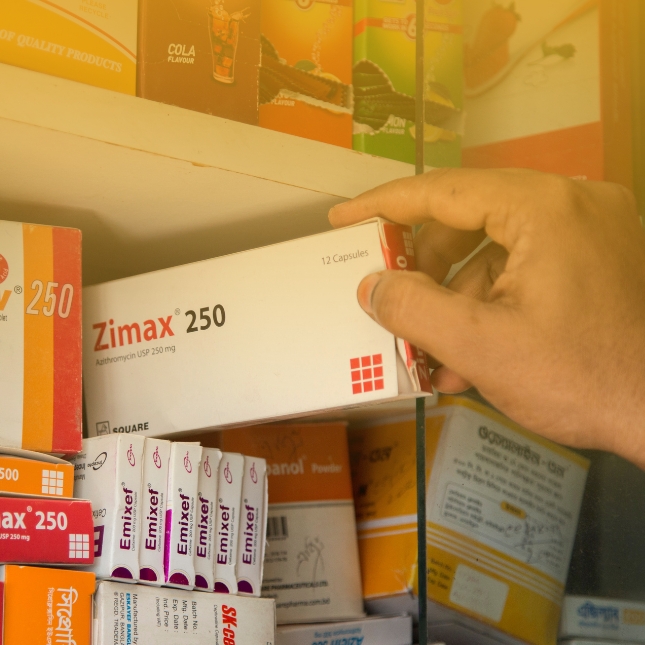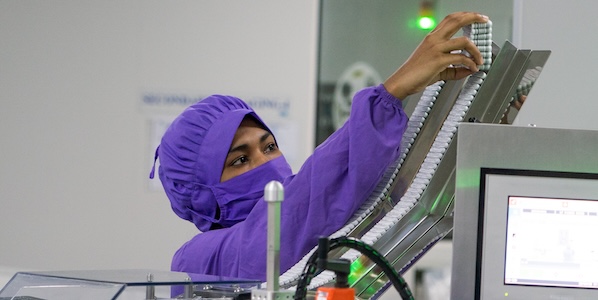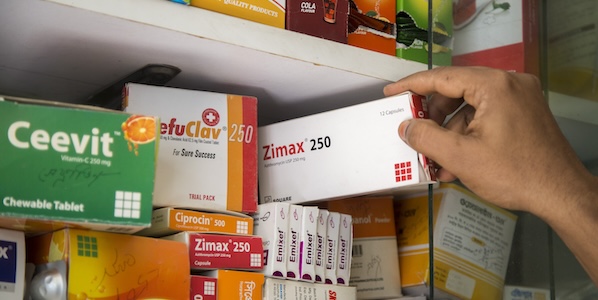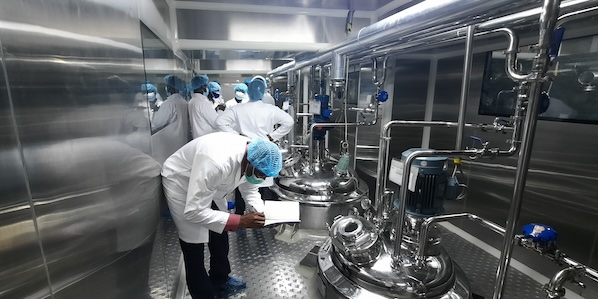According to the Society for Family Health Nigeria, at least 70 percent of Nigerians receive health care from the private sector, including community pharmacies, privately owned pharmaceutical retail outlets, and patent and proprietary medicine vendors (PPMVs).
While PPMVs are not pharmacists and can’t sell prescription medications, like antibiotics, they are licensed to disburse some pre-packaged, over-the-counter medicines and provide an essential entry point to care. However, if PPMVs stock medicines that are unregistered and unregulated, the products may be unsafe or ineffective, putting millions of people’s health at risk.
At least 70% of Nigerians receive care and medicines from private facilities, including informal pharmacies or patent and proprietary medicine vendors (PPMVs).
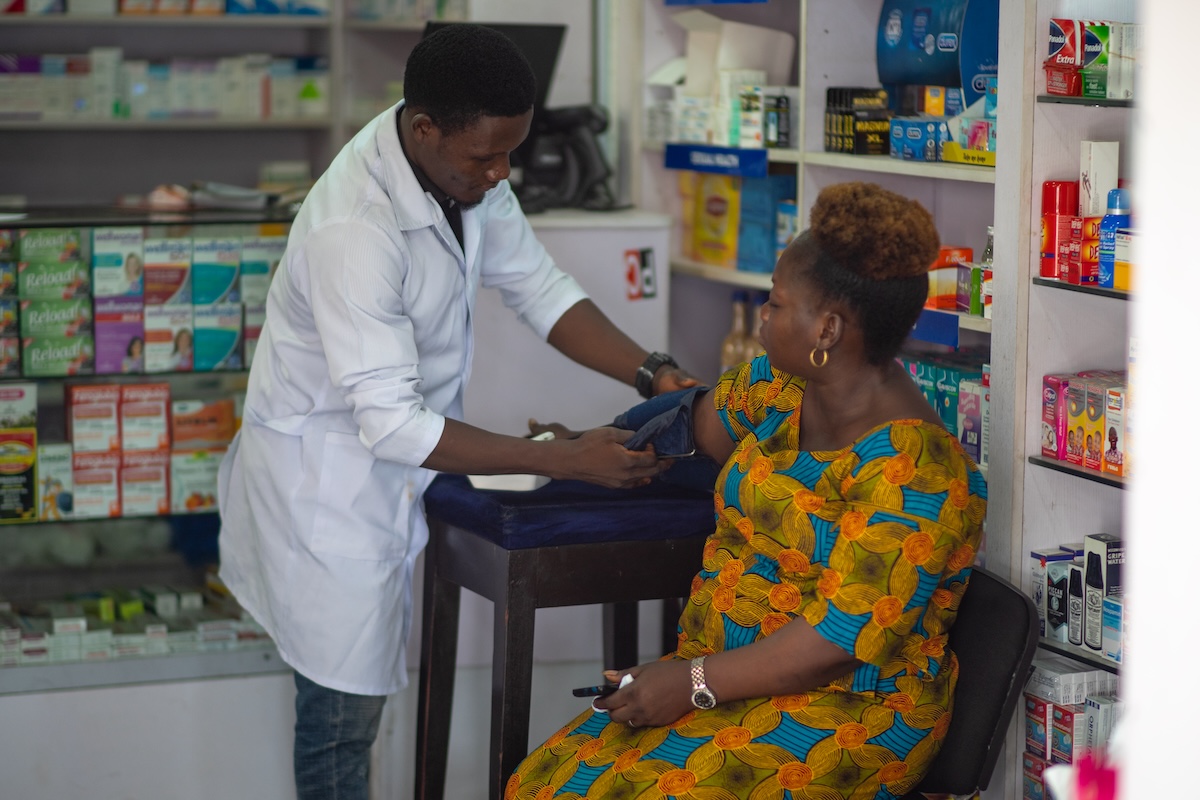
Bridging a gap in primary care
For many residents of poor, rural communities, PPMVs are the main point of access to medical products and health care in Nigeria.
With a population of nearly 221 million, Nigeria has too few medical facilities and resources to meet its public health needs. In many states, health facilities serve more people than they can accommodate, without enough health workers to support the system. PPMVs provide a partial alternative to an overburdened health system for many communities. People visit PPMVs to buy the medicines and medical products they need quickly and easily, without having to travel long distances to clinics or hospitals.
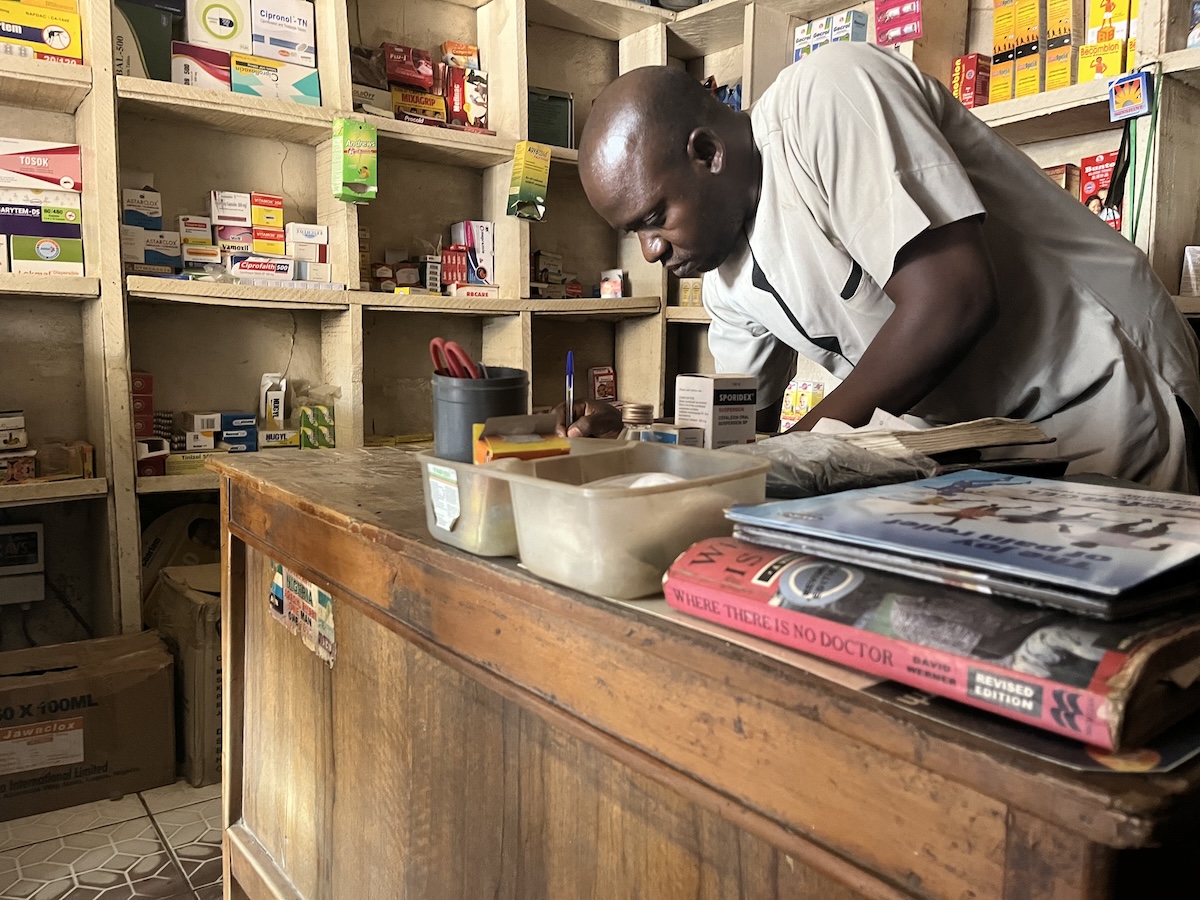
Although PPMVs deliver important health services for patients, recent research conducted by the U.S. Agency for International Development (USAID)-funded PQM+ program, which surveyed nearly 1,300 community pharmacies and PPMVs in five states – Bauchi, Benue, Ebonyi, Kebbi and Sokoto – and the Federal Capital Territory, found that these establishments often lack proper licenses, do not follow good pharmacy practices, and may stock unauthorized medicines.
According to a 2023 study, PPMVs are the first point of care for more than 60 percent of fever-related cases in children under 5 years old. PPMVs also provide medical services, like family planning and treatment for malaria and diarrhea, for nearly 60% of adults in Nigeria.
Building regulatory oversight and trust
While PPMVs are popular among Nigerians, they may not receive adequate regulatory oversight or support. The Pharmacy Council of Nigeria (PCN), the government authority mandated to regulate pharmacies, lacks sufficient funding, staffing, and capacity to oversee all drug outlets in the country, including more than 200,000 PPMVs.
While PPMVs are legally required to register with PCN, many PPMVs fail to do so. This is because, historically, many PPMVs lacked trust in PCN and saw the authority’s actions as punitive rather than supportive or corrective. As a result, many PPMVs aren’t tracked by PCN, and fall outside the regulatory body’s monitoring and supervisory reach. Instead, many PPMVs choose to register with their trade association, the National Association of Patent and Proprietary Medicine Dealers (NAPPMED).
To help build capacity and trust with PPMVs, PQM+ worked with NAPPMED and PCN to hold sensitization workshops for registered and unregistered PPMVs and train inspectors from six Nigerian states: Bauchi, Benue, Ebonyi, Federal Capital Territory, Kebbi, and Sokoto. The sessions guided inspectors on how to better communicate, manage conflict, and work more effectively with PPMVs. In turn, PPMVs were educated on PCN’s registration and licensing requirements, and given incentives to register to help ensure the quality of medicines and improve relationships between PCN and PPMVs.
Improving the quality of inspections
As part of PQM+ training, inspectors learned how to check PPMV registration status, identify whether a vendor stocked approved and registered medicines, check the quality of a medicine by looking for expiration dates, discoloration, or unacceptable moisture, and review storage conditions. PPMV trainings covered the same topics to facilitate transparency, so both state inspectors and PPMVs know how to prepare and what to expect during inspections.
In addition to facilitating training, PQM+ helped revise the PCN pharmaceutical inspector’s manual and create forms to standardize inspections and better document findings. By improving PCN’s quality assurance systems, PQM+ supported both PCN and the National Agency for Food and Drug Administration and Control (NAFDAC) in achieving global accreditation, including both ISO 9001:2015 certification and WHO maturity level 3 (ML3) for facility inspection and licensing. Stronger, more mature regulatory systems help strengthen entire health systems.
PQM+ helped increase the number of registered PPMVs, quality of inspections, and knowledge of good drug management. Thanks to these efforts, we strengthened quality assurance systems across local, state, and national levels.
Stocking quality-assured medicines
PQM+ helped Nigerian authorities inspect, license, and educate thousands of PPMVs to ensure the quality of the medicines they sell. In partnership with PCN and NAPPMED, the program worked to improve quality assurance systems and inspections at the national and state levels, while also training more than 2,300 PPMVs across local communities on good practices in stocking and selling quality-assured medicines, detecting poor-quality medicines and medical products, and storing medicines to maintain product integrity. These efforts help improve sustainability, build relationships and trust between key stakeholders, and strengthen entire health systems.
With training, 86 percent of PPMVs surveyed learned to identify two or three of the five quality attributes of a medical product.
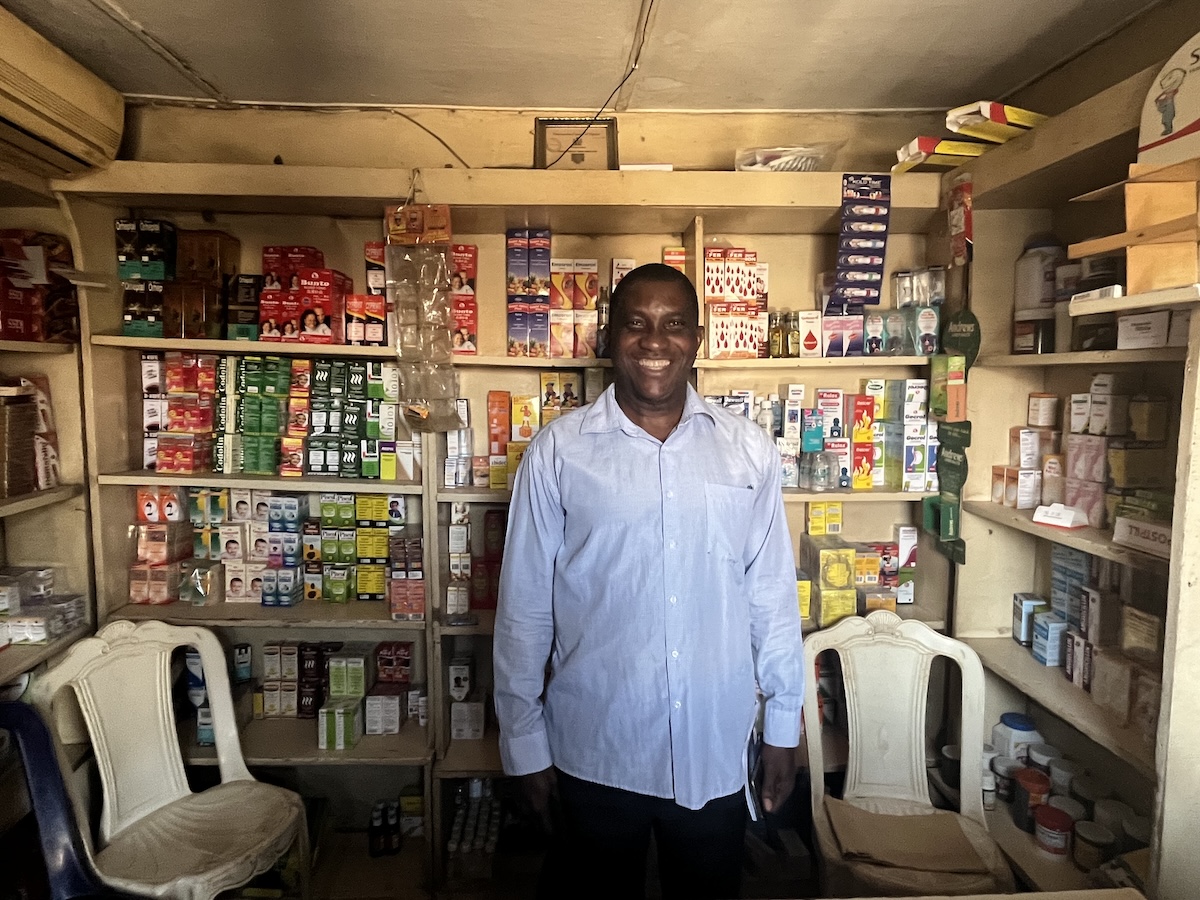
As a result of these efforts, the number of registered PPMVs increased. In addition, instead of buying their medicines on the unregulated open market, PPMVs started to source quality-assured products from registered wholesalers, according to a PQM+ follow-up survey of 120 PPMVs conducted in March 2023. Between procurement of higher-quality medical products, better training on storage and distribution practices, and a stronger ability to detect poor quality medicines, PPMVs are able to ensure the quality of the medical products they provide.
Moving forward
Today, in part thanks to these activities, PCN, NAPPMED, and PPMVs are better positioned to improve access to safe, effective, and quality-assured medicines for millions of Nigerians. But to be successful, regulators need proper financial and non-financial resources to provide essential training, carry out inspections, and offer supervisory support.
Registration and licensing fees could be an effective solution for generating financial resources. While only a small portion of the PPMV registration fee supports PCN operating costs, more registered PPMVs will generate more resources for PCN, helping improve sustainability.
Together, moving forward, PPMVs and PCN will continue to improve coordination, increase quality assurance, and strengthen Nigeria’s health system to make quality-assured medical products more available to patients across the country, including low-income and rural areas.





